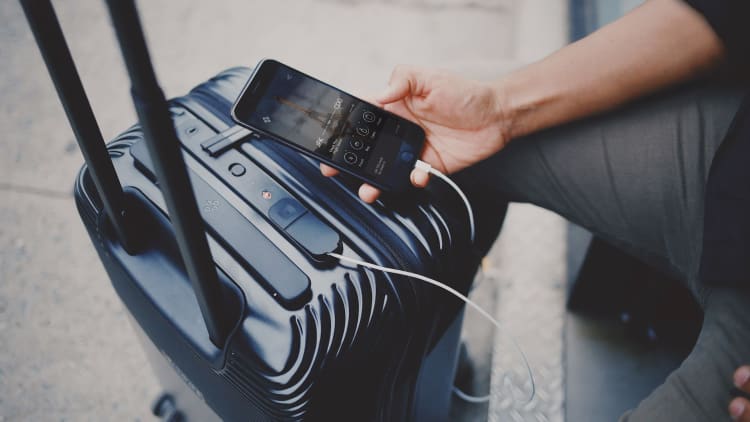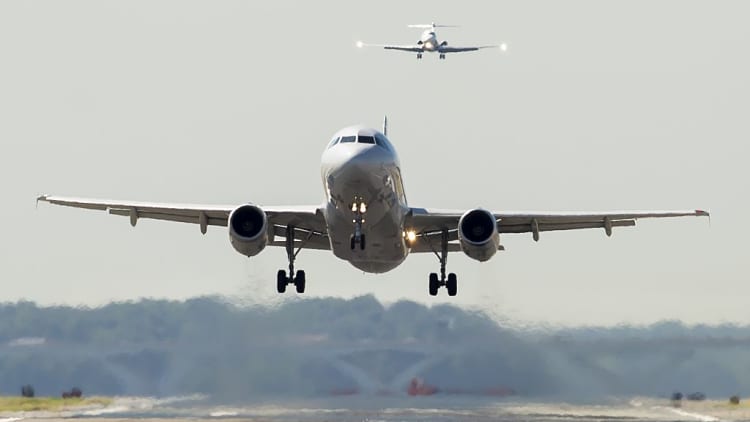
Battery-powered devices, from laptops to hoverboards, could pose a fire risk to airliners when stowed, airlines and regulators have warned.
Now high-tech suitcases are drawing similar scrutiny.
Passengers traveling on American Airlines won't be able to check their "smart" luggage if the suitcase's lithium-ion battery can't be removed, starting Jan. 15, the airline said on Friday.
Delta Air Lines and Alaska Airlines followed suit and their restrictions on smart luggage will begin on the same date. Delta said it made its decision "due to the potential for the powerful batteries to overheat and pose a fire hazard risk during flight."
United Airlines said it was working on a similar policy. A spokeswoman for Southwest Airlines said the carrier was "in the process of reviewing our policies and considering changes."
The Federal Aviation Administration does not allow spare lithium ion batteries in checked luggage.
If brought on board, the battery can be left in, but passengers must have the option of removing it should the airline need to downsize to a smaller aircraft that lacks overhead bin space.
Smart luggage is a small but growing corner of the more than $6 billion global luggage market. These suitcases often feature USB ports that allow passengers to charge their electronic devices, such as cell phones.
These bags "contain lithium battery power banks, which pose a risk when they are placed in the cargo hold of an aircraft," American Airlines said, noting that they are expected to be popular holiday gifts.
"As part of safety management and risk mitigation, we always evaluate ways to enhance our procedures, and the safety team at American has conducted its own analysis of these bags," it said.
The measure could affect smart-luggage startups, such as Bluesmart. The company said the batteries in its smart luggage, which include features like an internal scale and GPS tracking, cannot be removed.
Chief executive and co-founder of smart-luggage start-up Away said the batteries in its carry-on bags can be removed.
"It's a feature we thoughtfully designed, in part, because customers were asking for a charger that could be kept with them and used during flight," Steph Korey told CNBC.
Travelers have to use a Transportation Security Administration-approved screwdriver, which Away said it includes when it ships its suitcases to customers.
Lithium-ion batteries are a top concern for the aviation industry. A Trump administration ban earlier this year required passengers from certain Middle Eastern airports to check their electronic devices larger than a cell phone. That laptop ban, which has since been scrapped, drew concern about battery fires in the cargo hold.
Fires may be tougher to put out if they are in the harder-to-reach luggage hold than in the cabin where crew members have easy access to extinguishers or fire containment bags.
WATCH: American Airlines pilots reach agreement to staff flights



